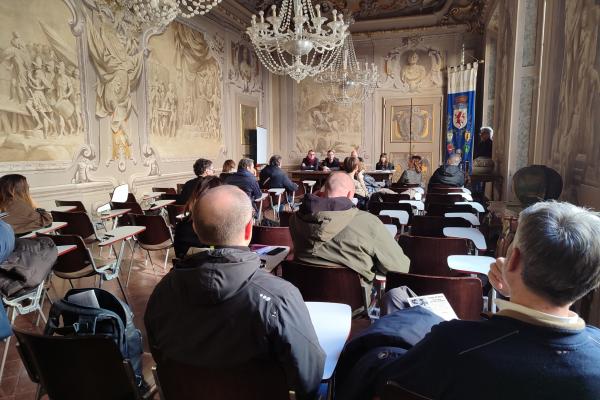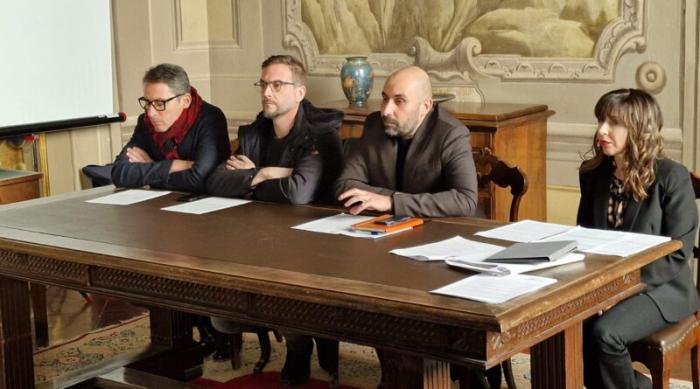
AQUAGREEN officially launched its activities with the Kick-Off Meeting held on December 16th 2024

Speakers, including the deputy mayor of Faenza, two councillors and the Head of the Public Works Department
AQUAGREEN officially started on December 1, 2024. On December 16, the project's Kick-Off Meeting and a public event were held, dedicated to local residents and community committees in Faenza.
In flood-struck cities like Faenza, projects like AQUAGREEN can support long-term resilience combining engineering, urban planning, ecology, and public engagement. AQUAGREEN’s test site is a 3.5-hectare area in Borgo Durbecco, a flood-impacted neighbourhood with water-retaining terrain. Here, systems like permeable pavements, rain gardens, green roofs, tanks, and urban basins, are being designed as a coordinated system to manage rainfall. These solutions slow, filter, and store water for reuse during dry spells, while also cooling urban spaces. This multifunctional area - consisting of a parking lot, park, and sports facility - is being transformed into a Multifunctional Resilience Park (MRP) and Living Lab (LL). Sensors and digital tools will track performance, while local residents join co-design workshops and take part in managing the space. Two major innovations further support resilience: a real-time early warning system for extreme weather, and a decision-support system integrating live data into urban planning across the wider municipal area.
In the first months of the project's implementation, the Unione della Romagna Faentina and the partners were engaged in preparatory activities for the design and implementation of the main solutions envisaged:
- Technical inspections and surveys in the pilot area
- Constant discussions between URF, universities and partner organisations
- Operational meetings to define every technical detail.
Operational working groups were created, with members from both the URF and the different partners, in order to define in detail the projects for each aspect of the innovative solution.
A meeting was also held on 1 April between all the partners and the technical expert assigned by the European Urban Initiative (EUI) who will support the partnership throughout the project implementation phase and help promote the initiative internationally.
Between May and June the main stakeholders, such as citizens' committees, technicians, professionals, associations and institutions, were invited to participate in thematic tables in order to draw up a participatory analysis on the current state of the city of Faenza and its territory following the flooding events. The results of these meetings and roundtables will be presented and shared next autumn, providing a useful framework for the development of guidelines and strategic recommendations for the continuation of the project and for making choices regarding the future use of the area concerned.